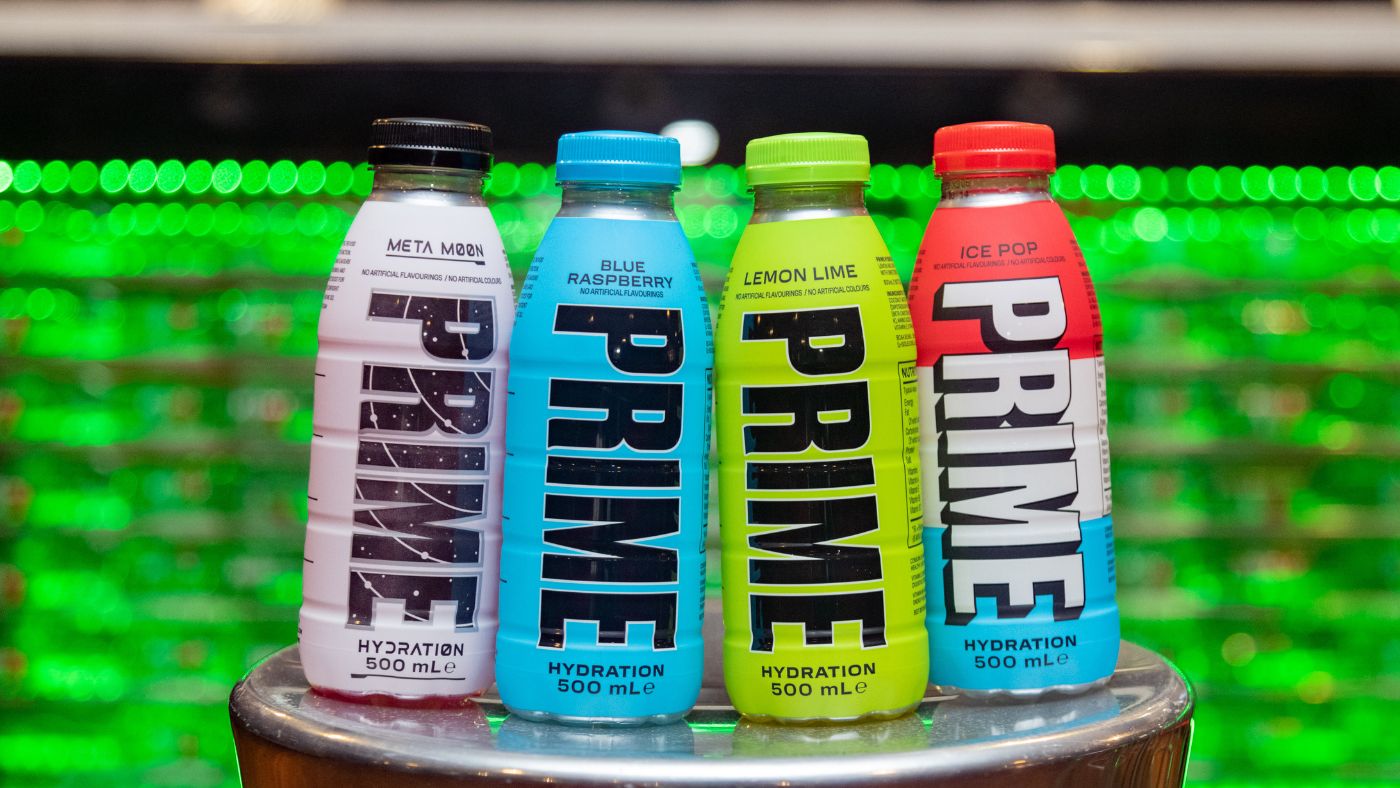Prime time: the rise and rise of energy drinks
The YouTuber-backed drink Prime is in such demand it is being resold by eager schoolchildren

A free daily email with the biggest news stories of the day – and the best features from TheWeek.com
You are now subscribed
Your newsletter sign-up was successful
Prime, the drink devised by YouTubers Logan Paul and KSI, has been causing mass hysteria among children across the UK since its release in January last year.
An advertising blitz in conjunction with apparent supply problems has led to “an aggressive secondary market at schools around Britain”, said Insider. Children in some areas have reportedly been paying many times the drink’s original price, often to be disappointed that the contents had been drained and replaced with squash or water.
Feverish interest in the brand has coincided with a “strange” new level of popularity for energy drinks, said The Guardian. “These concoctions – soft drinks that claim to boost potency and productivity – have been around in one form or another since the 1940s. But never before have they been such an intense and frequently purchased object of desire.”
The Week
Escape your echo chamber. Get the facts behind the news, plus analysis from multiple perspectives.

Sign up for The Week's Free Newsletters
From our morning news briefing to a weekly Good News Newsletter, get the best of The Week delivered directly to your inbox.
From our morning news briefing to a weekly Good News Newsletter, get the best of The Week delivered directly to your inbox.
What is Prime?
Prime isn’t exclusively an energy drink. Prime Hydration is the brand’s sports drink, which contains coconut water, B vitamins and branched-chain amino acids, which bodybuilders use to promote muscle growth. The brand’s energy drink is called Prime Energy, which also contains 200mg of caffeine – double the amount contained in a can of Red Bull.
It is not the only popular energy drink on the market, nor is it the market leader. That accolade belongs to Red Bull which has been growing steadily over the past decade. Last year, Red Bull sold 11.582bn cans globally compared with 4bn cans in 2011, the company reported. According to The Grocer, Red Bull saw its total UK revenues rise by 19% in 2021 to £414.7m.
Of course, “elixirs and tonics of one kind or another have been around for centuries”, The Guardian said, but “the first true energy drink seems to have been something called Dr Enuf”, which was released in the US in the late 1940s. However, it never really took off.
More successful were the energy drinks produced in Japan in the 1960s, but the real breakthrough in the West emerged in the 1980s when an Austrian businessman called Dietrich Mateschitz came across a Thai drink called Krating Daeng and collaborated with its inventor, Chaleo Yoovidhya, to create a fizzy version of the beverage, which became Red Bull.
A free daily email with the biggest news stories of the day – and the best features from TheWeek.com
What’s behind the sudden popularity?
The promises of energy drinks are extensive, said Courier. “Fortified with herbal extracts, micronutrients and superfruits, these products promise improved sleep, focus, energy levels and immunity.”
The claims appear to have hit their mark, the site said. “After a blip in 2020, [energy drink] growth is expected to jump to more than 8% this year, with the market worth $158 billion by 2023.”
This at least partially explains the popularity of Prime, which is, after all, “a triumph of marketing”, said Damian Whitworth in The Times. Targeted at “hormonal boys”, the brand has succeeded by trading on its limited availability.
“The brand’s UK website pictures the drinks with “sold out” plastered across each one,” Whitworth wrote. “Supermarkets, which never seem to be able to meet demand, have been forced to ration the number of bottles customers can buy, so that Prime Hydration has become to teenage boys what tomatoes are to the rest of us.”
Consequently, being able to get a bottle of Prime has become a “status symbol”, said The Washington Post.
Prime was created by two prominent influencers and boxers, Logan Paul and KSI. “The sometimes-controversial pair, whose fame spread through YouTube, collectively have tens of millions of followers online and already had publicly established an enemies-to-friends relationship after facing off in the ring,” said the Post.
Their “devoted followers” can show their loyalty by buying the drink, “and its immense popularity illustrates how influential and widespread marketing from online personalities has become”, the paper added.
“In the next 10 years, all the biggest brands will be made by creators,” said Mae Karwowski, CEO and founder of influencer marketing firm Obviously. “They understand the medium. They understand what their customers want.”
Why are people turning to energy drinks?
According to studies, energy drink consumption has been found to correlate with anxiety and insecurity.
Kathleen Miller, an addictions researcher affiliated with the University at Buffalo, New York, published a paper in 2008 which showed that among a group of 602 college students, high energy drink consumption correlated with a range of other risky behaviours, including getting into fights, not wearing a seatbelt and alcohol problems.
As The Guardian said: “Instead of asking why energy drinks are so popular, maybe we should be asking why so many millions of people feel broken enough to need them.”
Arion McNicoll is a freelance writer at The Week Digital and was previously the UK website’s editor. He has also held senior editorial roles at CNN, The Times and The Sunday Times. Along with his writing work, he co-hosts “Today in History with The Retrospectors”, Rethink Audio’s flagship daily podcast, and is a regular panellist (and occasional stand-in host) on “The Week Unwrapped”. He is also a judge for The Publisher Podcast Awards.